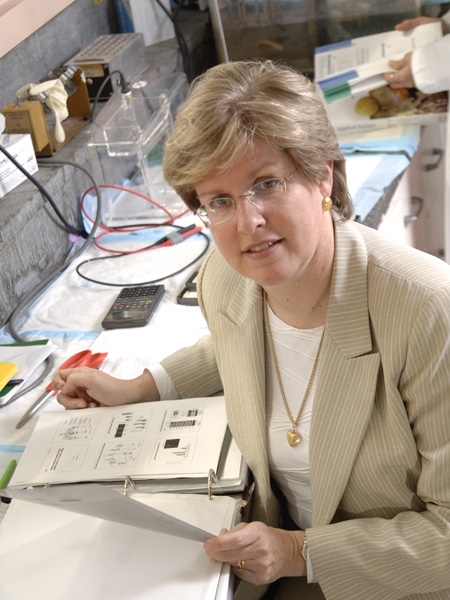
Dr. Barbara Hempstead
Weill Cornell Medical College is partnering with Cornell University and the University of Buffalo to create the Center on the Microenvironment and Metastasis.
Funded by a $13 million grant from the National Cancer Institute, the Center is one of 12 new research facilities the NCI is supporting in search of fresh physical perspectives to combat cancer.
Cornell will serve as the lead institution in a partnership with the Weill Cornell Medical College and the University at Buffalo. The Center will focus on using nanobiotechnology and other related physical science approaches to advance the research on cancer.
Dr. Barbara Hempstead, professor of medicine and co-chief of the Division of Hematology and Medical Oncology at Weill Cornell Medical College, will serve as the senior co-investigator.
"By partnering engineers with physicians, this grant is, in essence, inviting a whole new discipline of scientists to the cancer table," Dr. Hempstead said. "Through this innovative collaboration we hope to gain new insights into how cancer cells migrate and form malignant metastases."
Harold Craighead, Cornell professor of engineering and the director of Cornell's Nanobiotechnology Center, will serve as the principal investigator and director of the new Center.

Harold Craighead
"Our Center will be organized to unravel cancer's complexity — using methods derived from the physical sciences and engineering — to further understand how cancer travels through the human body," Craighead said. "The research may help identify new drug possibilities to inhibit metastasis and tumor growth."
Nationally, the 12 new centers will bring a new cadre of theoretical physicists, mathematicians, chemists and engineers to the study of cancer. During the initiative, the Physical Sciences–Oncology Centers will take new, non-traditional approaches to cancer research by studying the physical laws and principles of cancer; evolution and evolutionary theory of cancer; information coding, decoding, transfer, and translation in cancer; and ways to de-convolute cancer's complexity.
A significant portion of the CMM research at the Weill Cornell campus will be conducted in laboratory space within the newly renovated Arthur and Rochelle Belfer Institute of Hematology and Medical Oncology. In addition, the Belfer Foundation's investment in several key faculty members was instrumental in allowing this project to coalesce and move forward.
"The Arthur and Rochelle Belfer Foundation is committed to advancing cutting-edge cancer research and is therefore very pleased to play a part in this vibrant research enterprise. Technological innovation and research partnerships working to uncover disease mechanisms will help reach the ultimate goal of unlocking effective new treatments," said Robert A. Belfer, president of the Arthur and Rochelle Belfer Foundation.
